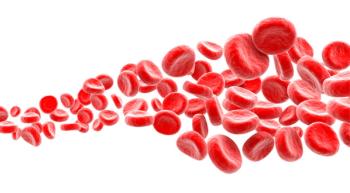
BTK Inhibitors in WM: Understanding Safety/Efficacy
Transcript:
Steven P. Treon, MD, PhD: We will often sit down and tell patients about every drug that may be considered for their treatment. We’ll talk about the efficacy of those drugs. And when we talked about efficacy, we look at the overall response rate as well as what the depth of response is. That’s a very important patient question. Will this get me into a deep response, and how long will that response last for?
It’s also very important to ask about adverse effects, or side effects, to know what those side effects are, both the short term, while you’re on therapy, as well as the long-term ones. Am I going to see something further down the line? And I have to say that many of the studies that we did, it was really the side effects further down the line that we were often surprised by. And so this is really why we need to do clinical studies and maintain vigilance over long periods of time.
Bruton tyrosine kinase [BTK] inhibitors also have side effects, and it’s very important that the physician discuss those potential side effects with the patients. Typically, this would include a decrease in blood counts. This tends to be more of a manifestation of people who have seen a lot of prior therapy. We’ve seen very little decrease in blood counts when the patients get treated as their first treatment with ibrutinib as an example in the study that we ended up doing.
There’s always a risk of atrial fibrillation. This is an arrhythmia of the heart. We see this now in somewhere between 10% and 15% of all patients. It’s important to keep in mind that there could be other reasons for atrial fibrillation, so one wants to explore for that as part of somebody’s workup. An amyloid of the heart is one of those etiologies.
Now, getting atrial fibrillation on a BTK inhibitor doesn’t mean you have to stop that therapy. In fact, with very few of our patients treated with ibrutinib did we actually have to stop the drug. We’re often able to manage around the atrial fibrillation. We do this by first making sure that it is probable that it’s the drug that’s causing this. And so in many of our patients, we’ll then, working with a cardiologist, start an antiarrhythmic drug. If that doesn’t work, we will consider cardiac ablation if it’s appropriate for the patient. It’s one of the techniques that’s used to help cauterize the tracks that may contribute to the atrial arrhythmia. And then in some cases we’ll just put the patient on an anticoagulant, a blood thinner, in order to make the atrial fibrillation safer. Those were all things that should be taken in the context of a cardiologist, but it’s important for the patient to know that even in the setting of atrial fibrillation, in the vast majority of cases, we can continue therapy.
Bleeding is also another risk that we see with BTK inhibitors. Usually these are minor in nature, such as bruising. But if you’re going to have a procedure, it’s very important for the patient to know that they need to stop the drug before and after the procedure. The length of time should be determined with your doctor because not every procedure is created equally, and so it’s very important. And also think about whether or not the procedure can be varied. We sometimes have talked to the surgeon only to realize that we didn’t need the big operation, that perhaps an alternative procedure could be done. So those are all the discussions that you would have.
There are also other side effects with BTK inhibitors that your doctor would know more about that could tell you a little bit about those. There are foods and supplements that one may need to also avoid during the time you’re on a BTK inhibitor. I remember when we had patients coming in on fish oils. They were taking marine oils. They were seeing a lot of bleeding from their nose while they’re on a BTK inhibitor. And we recognized that it was really the fish oil thinning out the blood. We stopped those, and the bleeding went away. So keep in mind that there could be things that could also provoke bleeding that are not good ideas to have it together with a BTK inhibitor.
Transcript Edited for Clarity




